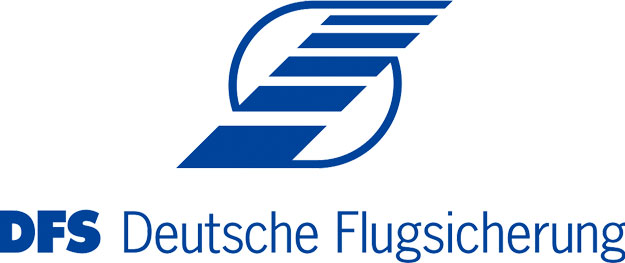Aireon has signed a Memorandum of Agreement with Deutsche Flugsicherung GmbH (DFS), Germany’s Air Navigation Service Provider (ANSP) to evaluate the safety, efficiency and cost benefits of space-based Automatic Dependent Surveillance-Broadcast (ADS-B) in their airspace.
DFS is one of the leading ANSPs in Europe, and controls the air traffic throughout German airspace.
Like many other European ANSPs, DFS has complete air traffic surveillance coverage, including a mix of ground-based radar, ADS-B and multilateration stations.
The MoA will allow DFS to evaluate options for potentially optimizing the replacement of some legacy equipment that requires expensive upkeep.
(See how space-based ADS-B can improve operations over the North Atlantic (NAT). Courtesy of Aireon LLC and YouTube)
“In countries like Germany, which consists of mostly terrestrial airspace, space-based air traffic surveillance can serve an extremely beneficial role as a contingency system, as well as provide cost savings on existing technologies.”
“This is particularly true for portions of the airspace over challenging terrain. Maintaining the necessary ground stations in areas with minimal supporting infrastructure is an expensive and challenging proposition, especially when some can require round-the-clock maintenance due to age. We very much look forward to working with DFS to assist them with their analysis.”
In addition, they will investigate the establishment of an independent contingency service for enhanced redundancy, which can be used to have a consistent air traffic surveillance feed.

“DFS is keen to explore the potential benefits that space-based ADS-B can bring to the region. This is not only for enhanced safety, but also increased efficiency. It could provide us with another layer of surveillance in the event of an outage or interruption,” said Ralf Bertsch, Director Planning and Innovation, DFS.
“We are also looking at the benefits that Aireon’s data could offer for all of Europe. This could allow us to optimize the usage of legacy ATS surveillance systems.”

“This agreement shows the willingness for leading European ANSPs to evaluate best-in-class technology that will provide increased safety and efficiency benefits,” said Cyriel Kronenburg, Vice President, Aviation Services, Aireon.
“In countries like Germany, which consists of mostly terrestrial airspace, space-based air traffic surveillance can serve an extremely beneficial role as a contingency system, as well as provide cost savings on existing technologies.”
“This is particularly true for portions of the airspace over challenging terrain. Maintaining the necessary ground stations in areas with minimal supporting infrastructure is an expensive and challenging proposition, especially when some can require round-the-clock maintenance due to age. We very much look forward to working with DFS to assist them with their analysis.”
(GlobalBeaconSM is an easy-to-deploy solution to help make airlines compliant with International Civil Aviation Organization (ICAO) Global Aeronautical Distress Safety System (GADSS) standards. This solution leverages existing technology commonly available on most of the global aircraft fleet (ADS-B Out), well in advance of the November 2018 provisions implementation. Courtesy of AireonLLC and YouTube)
Aireon’s space-based ADS-B service will be operational in 2018, shortly after the completion of the Iridium NEXT satellite constellation. The constellation will consist of 66 operational low-earth-orbit satellites providing 100 percent global coverage.
The service will provide ANSPs with global aircraft surveillance capability, and is expected to help reduce fuel costs, increase safety and enable more efficient flight paths.
Aireon is deploying a space-based air traffic surveillance system for Automatic Dependent Surveillance-Broadcast (ADS-B) equipped aircraft throughout the entire globe.
Aireon will harness next-generation aviation surveillance technologies that are currently ground-based and, for the first time ever, extend their reach globally to significantly improve efficiency, enhance safety, reduce emissions and provide cost savings benefits to all stakeholders.
Real-time ADS-B surveillance will cover oceanic, polar and remote regions, as well as augment existing ground-based systems that are limited to terrestrial airspace.
In partnership with leading Air Navigation Service Providers (ANSPs) from around the world, like NAV CANADA, the Irish Aviation Authority (IAA), ENAV and Naviair, as well as Iridium Communications, Aireon will have an operational, global, space-based air traffic surveillance system by 2018.
DFS Deutsche Flugsicherung GmbH, the German air navigation service provider, is a State-owned company under private law which ensures the safe and punctual flow of air traffic over Germany.
Around 2,000 air traffic controllers guide up to 10,000 flights in German airspace every day, and about three million movements every year. This makes Germany the country with the highest traffic volume in Europe.
DFS operates control centres in Langen, Bremen, Karlsruhe and Munichas well as 16 control towers at international airports in Germany, and is represented at the EUROCONTROL Control Centre in Maastricht, the Netherlands.

















